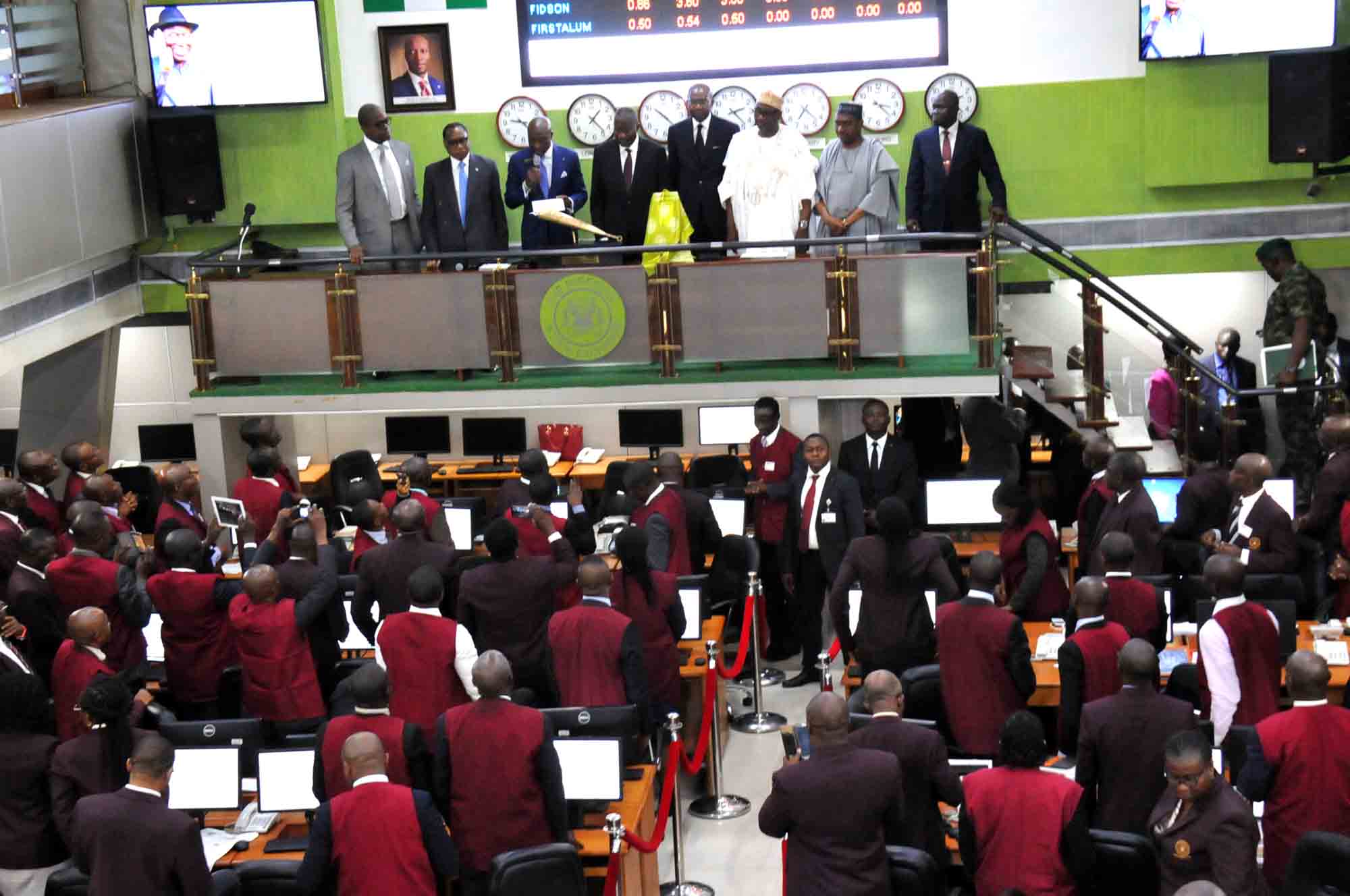- NSE: New Listings Yield N62.5bn in Three Months
The Nigerian Stock Exchange raked in N62.5bn from the fresh listing of five companies’ securities in the first quarter of this year.
The securities include Greenwich Asset Management Limited’s memorandum listing by introduction of 14,485,500 units of the Greenwich Plus Money Market Fund at N100 each; Forte Oil Plc’s N9bn series 1:5 year 17.50 per cent fixed rate unsecured bonds due in 2021 under a N50bn bond issuance programme; and Jaiz Bank Plc’s listing by introduction of 29,464,249,300 ordinary shares at N1.25 per share.
The other two are Med-View Airline Plc’s listing by introduction of 9,750,649,400 ordinary shares at N1.50 kobo per share; and SIAML Pension ETF 40’s listing of 5,970,000 units of the SIAML Pension ETF 40.
The securities were listed on March 7, February 21, February 9, January 31 and January 24, accordingly, with value/market capitalisation of N1,448,550,000; N9,000,000,000; N36,830,311,625, N14,625,974,100 and N597,000,000, respectively.
The quantities of securities admitted by the Exchange were 14,485,500; 9,000,000; 29,464,249,300; 9,750,649,400 and 5,970,000, respectively, with unit price of 100; 1,000; 1.25; 1.50 and 100, accordingly.
The delisting of 15 companies from the NSE in 2016 took away N24,075,418,729.61 capital from the market.
The 15 firms left the market for various reasons such as voluntary intent, regulatory directive, and mergers and acquisitions.
Those affected include G. Cappa Plc, IPWA Plc, West African Glass Industries Plc, Investment and Allied Insurance Plc, Alumaco Plc, Jos International Breweries Plc, Adswitch Plc, Rokana Plc and Vono Products Nigeria Plc.
Others are Lennards (Nigeria) Plc, P.S. Mandrides and Company Plc, Premier Breweries Plc, Costain West Africa Plc, Navitus Energy Plc and Nigerian Ropes Plc.
The market capitalisation of the respective firms as of the time of delisting was given as N1.717bn, N257.07m, N131.427m, N14bn, N557.201m, N809.280m, N203.758m, N30m, N484.74m, N210.492m, N214m, N2.888bn, N542.191m, N62.118m and N1.966bn, respectively.
Vono Products Plc was delisted after its merger with Vitafoam, while the others were delisted as a result of non-compliance with their post-listing obligations.
The NSE listed one firm throughout 2016. The firm listed was a Port Harcourt-based industrial cleaning, contamination and waste management company known as The Initiates Plc.
The company was listed by the introduction of 889,981,552 ordinary shares of 50 kobo each on the Alternative Securities Market Board at the price of N0.85 per share.
The outstanding shares for each of the delisted companies, according to the NSE, are 125,000,000; 514,140,713; 208,614,500; 28,000,000,000; 75,604,049; 562,000,000; 125,005,250; 50,000,000; 563,651,183; 70,164,062; 40,000,000; 979,211,412; 1,084,382,980; 98,600,000; and 263,668,295, respectively.
As part of efforts to further improve market transparency and integrity, provide timely information for investment decisions as well as enhance the protection of investors in the capital market, the NSE last year commenced the use of enhanced Compliance Status Indicator codes on the ticker tape for listed companies. This became effective on May 9, 2016.
Under the initiative, the Exchange tags all listed companies with a three-character code that indicates their compliance status at any particular point in time. This compliance code enables investors to make informed decisions, while ensuring a transparent market guided by timely information.


 Naira3 weeks ago
Naira3 weeks ago
 News4 weeks ago
News4 weeks ago
 Naira4 weeks ago
Naira4 weeks ago
 Naira3 weeks ago
Naira3 weeks ago
 Jobs4 weeks ago
Jobs4 weeks ago
 Travel3 weeks ago
Travel3 weeks ago
 Naira3 weeks ago
Naira3 weeks ago
 Investment4 weeks ago
Investment4 weeks ago





























